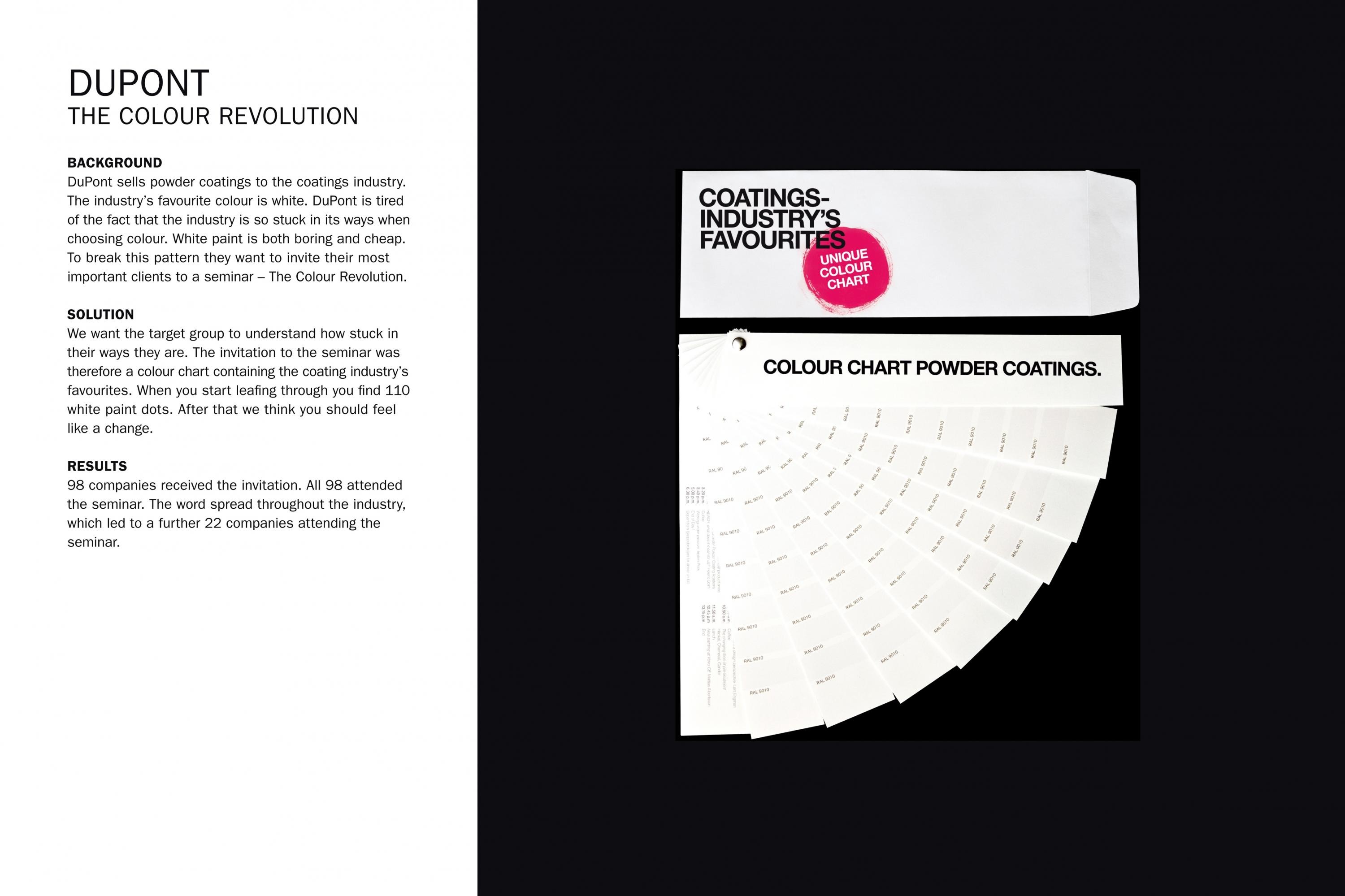Cannes Lions
WELCOME TO THE GLOBAL COLLABORATORY
OGILVY PUBLIC RELATIONS, New York / DUPONT / 2013


Overview
Entries
Credits
OVERVIEW
Description
By 2050, the world’s population will grow from today’s 7 billion to 9 billion, meaning we will have to produce 70% more food than we do now to avoid large-scale starvation and misery. DuPont invests 62% of its R&D in solving food challenges, but its reputation as a chemical company made it difficult for the company to impact the global food security dialogue and become a trusted partner to governments, NGOs and others who were leading the fight.
DuPont had to earn the recognition and trust of the people who could help make a difference. So the company gave those leaders a vital tool to help them address global food challenges. Partnering with the Economist Intelligence Unit, DuPont established the first-ever Global Food Security Index (GFSI). Spanning 105 countries and accessible through an interactive website, the GFSI became a unique resource in the struggle against food insecurity.
The GFSI launched simultaneously in five countries, as DuPont leadership took the stage alongside noted academics, government representatives, NGOs and others. Live streaming video, robust social media and enthusiastic press coverage amplified the events. Take-up was immediate. DuPont was invited to speak at over 10 global summits and 15 global organizations requested dedicated briefings. Within eight months, seven collaborative arrangements had been forged, including with USAID who now uses the GFSI to inform its global planning.
DuPont is no longer a staid 'chemical company'. It has transformed into a trusted and respected collaborator in the fight for food security in the 21st century.
Execution
Groundwork for the GFSI launch began in early February by convening a Food Security Goals Forum in Washington, D.C. where DuPont CEO Ellen Kullman announced a commitment to invest $10 billion in R&D in food, agriculture and biotechnology. This was reinforced a week later when DuPont keynoted The Economist’s 'Feeding the World' Summit in Geneva, followed by a high-profile appearance at the G-8 Summit in Washington, D.C. In July, over 400 leading influential voices in the global food space attended simultaneous launch events in Washington, D.C, Brussels, Sao Paulo, Santiago and Johannesburg. The reach of these events extended through the DuPont food security digital hub, live-streaming video, a multi-media news release, traditional and social media and digital advertising. Finally, the campaign was designed to have long-term relevance, with annual updates around price fluctuations and new GFSI indicators, and country-specific in-depth analyses stimulating greater, smarter and more effective collaboration globally.
Outcome
The campaign transformed DuPont’s reputation from marginal player to global authority. The GFSI opened doors with essential collaborators in DuPont’s mission to apply its science to food issues worldwide. More than 15 global organizations have requested dedicated briefings on the Index, including The White House. DuPont has been invited to participate in over 10 global events, including the 2013 World Economic Forum in Davos, and CEO Ellen Kullman was asked to testify before Congress on food security. More than 320 unique articles have been written on the GFSI and the website has seen 120,000 visitors to date. In just eight months, collaborative opportunities with seven major players emerged, including USAID which is using the GFSI to inform its long-term planning. DuPont successfully transformed itself from a 200-year old U.S. chemical company to a 21st century visionary with a place at the global table on food security.
Similar Campaigns
12 items








